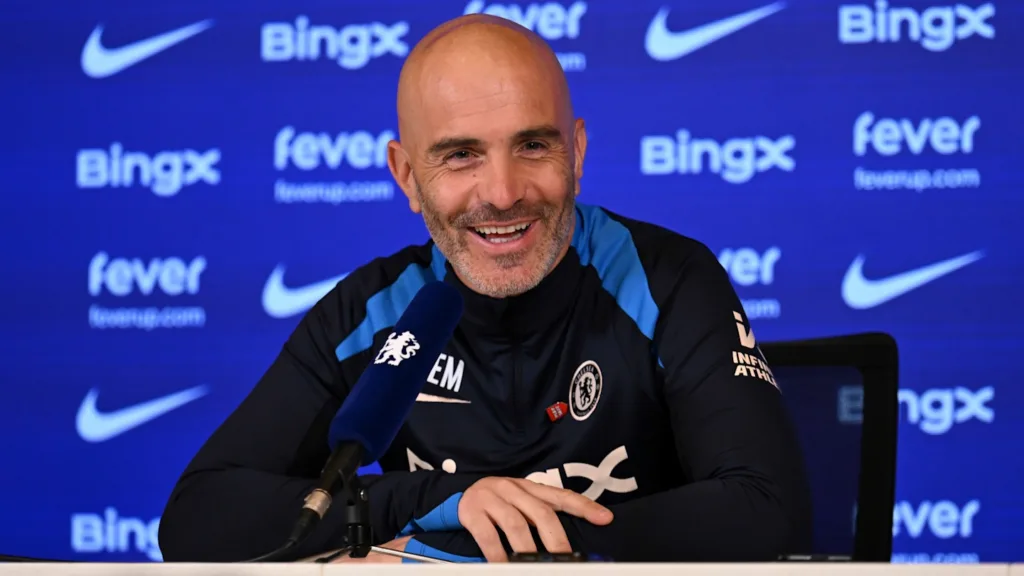Chelsea manager Enzo Maresca insists he harbours no regrets about being sent off during his exuberant celebration following his side’s dramatic 2-1 victory over Liverpool. The red card, shown after he joined his players in a touchline sprint to mark a stoppage-time winner, was for Maresca a visceral, instinctive moment — one he says was “worth it.”
“It was a huge emotion against Liverpool,” Maresca said when asked to reflect on the incident. “It’s my second season at Chelsea and it was the first time we won at home in the last minute. The sending-off? I’ve said many times, football is passion, instinct. I probably didn’t have time to think. It was an instinctive reaction, but I think it was worth it.”
The Italian’s remarks came in the wake of the controversial moment at Stamford Bridge on October 4, when Estevão Willian struck a last-gasp winner in the 95th minute. Rather than maintaining composure, Maresca abandoned restraint and raced down the side of the pitch to join in the celebration, only to be shown a second yellow and dismissed.

Despite the impending suspension that will rule him out of Chelsea’s next Premier League fixture at Nottingham Forest, Maresca was defiant in defending his behaviour. He portrayed the decision of the referee as a byproduct of passion rather than calculated insubordination. “Football is passion,” he said. “Instinct — I probably didn’t have time to think.”
Chelsea now face a brief managerial absence, though given Maresca’s public stance, the club appear unlikely to punish him further. The manager’s celebration, while costly in terms of discipline, has also drawn attention to the emotional commitment he brings to the role — a connection with players and fans that some commentators see as strengthening his standing rather than weakening it.
Chelsea’s next match, scheduled against Nottingham Forest, comes during the Premier League’s post-international break resumption, meaning Maresca will be serving his suspension then. The club will once again look to the bench to marshal the team in his absence.
Despite that, Maresca’s public message has been clear: he stands by his actions. In a sporting environment where managers often distance themselves from emotional responses — especially those that draw disciplinary sanction — his insistence on a zero-regrets stance is bold.
He framed the red card not as a mistake to regret, but as a consequence of his commitment to his players and the moment.
In raising the broader question of managerial passion in elite football, Maresca’s case is instructive. A coach must balance tactical acumen, man-management, and mental composure. Yet he must also connect with players and fans, sometimes through visible emotion. For Maresca, the gamble paid off — at least in spirit — even as it left him temporarily sidelined.

